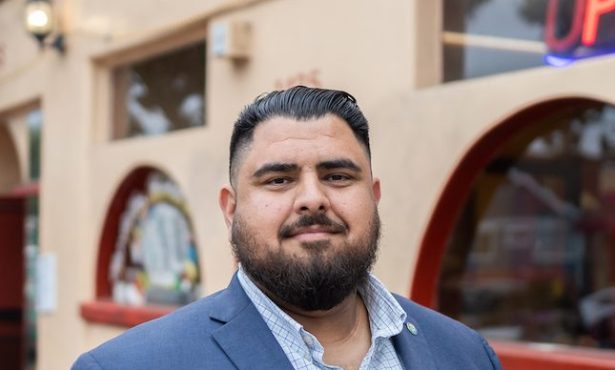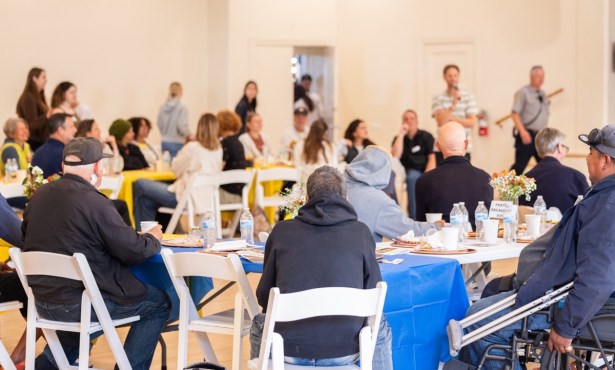Poodle | Will Santa Barbara Purists Tank the Police Review Commission?
Should People with Direct Law Enforcement Experience Be Disqualified?

PURISTS V. PRAGMATISTS: Over the weekend, it occurred to me that maybe Ketanji Brown Jackson, the first Black woman ever to be nominated for the Supreme Court, might not meet the über-strict eligibility requirements to serve on the city’s proposed new Police Oversight Board, which I promise henceforth never to refer to as a POB.
In so many ways, Judge Jackson would bring an amazing breadth of long-neglected personal and professional experience to the high court. She’d be the very first public defender ever appointed, bringing to the bench an in-the-bones understanding of life as lived by people too poor to hire their own attorneys when charged with serious crimes.
On a personal level, one of Jackson’s uncles had been sentenced to a life behind bars for a nonviolent drug offense. Ultimately, he and 1,700 others charged under the three-strike laws would be pardoned by President Barack Obama. On a professional level, Jackson was appointed by Obama to serve on the sentencing commission to rewrite federal penalties for such things as nonviolent drug offenses.
But for many years, Jackson’s brother worked as a Baltimore street cop, and another uncle was the chief of the Miami Police Department.
Which is why I wondered if Jackson would be eligible for a seat on the Santa Barbara police review board.
An intense debate has been raging among the 15 members of the city commission appointed to hammer out the specifics of a POB: Should people with direct life experience in law enforcement be allowed to serve?
An email survey is now being sent to members of the wider community, asking if they agree, among other things, with the draft language outlining who would be eligible to sit on the new oversight board: Should anyone who has ever been a sworn law enforcement officer or any of their immediate family members be disqualified?
At the risk of using a clinically imprecise term, that’s crazy.
Some members — an excruciatingly slim majority by my count — strongly believe the new agency must be scrupulously independent of any taint of undue influence from law enforcement. In addition, they recoiled from requiring boardmembers to take what’s known as a “police ride-along” as part of their training. (Under the proposed draft language, ride-alongs are now optional.)
Sign Up to get Nick Welsh’s award-winning column, The Angry Poodle delivered straight to your inbox on Saturday mornings.
Other members — one of whom resigned in disgust — believe just as emphatically that excluding a law enforcement perspective from the board is not only short-sighted — who knows more about cops than other cops? — but gratuitously self-destructive from a political perspective.
Here’s my deal. I don’t want the police review board to fail. This is a once-in-a-lifetime opportunity, a political and racial reckoning, that was sparked by the nine-minute execution of George Floyd, arrested for passing a counterfeit $20 bill. We don’t have problems like that here in Santa Barbara. But a police review board can help ensure that remains the case. It can do all kinds of good. We desperately need an institutionally embedded instrument for ongoing oversight and evaluation when it comes to deploying scarce public safety resources.
A case in point: Mental-health advocates were forced to fight too hard, too heroically, and too repeatedly to save the single best program — the co-response units — the county and city have yet devised for getting mentally ill people proper treatment rather than putting them in jail. When untrained cops encounter mentally ill suspects, the results can be volatile and bloody. Funding for these admittedly stellar programs remains strictly short-term and highly insecure.
This is exactly the sort of issue members of a civilian oversight boards can address. When law enforcement agencies say — as they have in the past — “We don’t have the money,” I want someone on that board who knows how law enforcement agencies hide the money. That someone, I’m guessing, will need to have had direct life experience in law enforcement.
Another case in point: The single most blistering statistical critique yet delivered of racial disparities in Santa Barbara County’s criminal justice system — post–George Floyd — was presented to the Santa Barbara County Supervisors last June by Santa Barbara’s interim police chief, Barney Melekian, and County Probation Chief Tanja Heitman. Speaking with professional understatement, they revealed that in Santa Barbara, Black adults were 3.5 times more likely to be booked into county jail, nearly two times as likely to get sentenced to state prison, and 0.7 times less likely to be placed in a pre-trial diversion program than their White counterparts. Nobody used the word “racism,” let alone the term “systemic racism.”
The point here is if we have any hope of recalibrating how law enforcement does its job, we absolutely need law enforcement officials — such as Melekian and Heitman — at the table. It takes two to tango.
Cutting off your nose to spite your face? Well, that you can do all by yourself.
The political winds have shifted significantly in the past two years. There’s less support on the council for a POB. Some councilmembers say it’s too big and too expensive — $600,000 a year when City Hall is underwater by $3.5 million. Excluding anyone who was ever a cop is the kiss of death.
Four votes are needed to approve the POB. When members of the commission rewrite their final proposal, I hope they count to four.
Ketanji Brown Jackson, it turns out, would be eligible to serve on our commission after all. I reread the rules; they bar immediate family members only of Santa Barbara city cops, past and present. Her relatives served elsewhere. But why let the facts get in the way of a good story? The real story is about political reality. Don’t screw it up.
Support the Santa Barbara Independent through a long-term or a single contribution.



